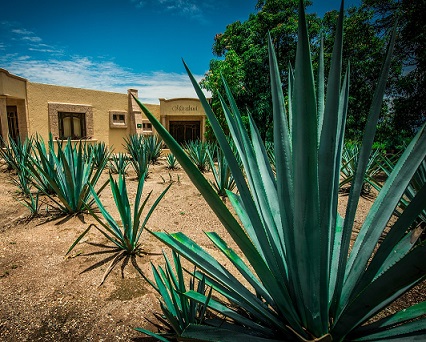In recent years, there has been a growing interest in natural sweeteners as people become more conscious of their sugar intake and seek healthier alternatives to refined sugars. One such sweetener that has gained popularity is agave nectar. Derived from the sap of the agave plant, it offers a unique flavor profile, versatility in cooking, and potential health benefits. Let’s delve deeper into the sweet side and discover why it’s worth knowing about.
The Origins of Agave Nectar
Agave nectar, is made from the sap of the plant by the same name, primarily the blue agave species native to Mexico. The process of extracting the nectar involves harvesting the sap from the core, or “piña,” of the plant. The sap is then filtered, heated to break down complex carbohydrates into simple sugars, and concentrated into a syrup-like consistency.
Unique Flavor Profile
One of the distinctive qualities of agave nectar is its flavor profile. It is characterized by a mild, sweet taste with subtle hints of caramel and honey. Unlike some other sweeteners, it does not have a strong aftertaste, making it a versatile ingredient in various culinary applications. Whether used in baking, beverages, or as a topping for pancakes and yogurt, agave nectar adds sweetness without overpowering other flavors.
Versatility in Cooking and Agave Health Benefits
Agave nectar’s versatility extends beyond its flavor profile to its functionality in cooking and baking. It can be used as a direct substitute for honey, maple syrup, or sugar in recipes, offering a liquid form that blends easily with other ingredients. The nectar’s ability to dissolve quickly makes it ideal for sweetening beverages like tea, coffee, and cocktails. Additionally, its low glycemic index may appeal to those looking to manage their blood sugar levels.
While agave nectar is still a sweetener and should be consumed in moderation, it does offer some potential health benefits compared to refined sugars. One of the key advantages is its lower glycemic index, which means it may cause less of a spike in blood sugar levels compared to table sugar. This can be beneficial for individuals with diabetes or those watching their sugar intake.
Additionally, it contains small amounts of vitamins and minerals, including potassium, calcium, and magnesium. While these nutrients are present in minimal quantities, they contribute to agave nectar’s overall nutritional profile.
Choosing the Right Type of Agave Nectar
When selecting agave nectar, it’s essential to consider the quality and processing method. Opt for organic and unprocessed varieties to ensure minimal exposure to chemicals and retain as many of the natural nutrients as possible. Additionally, look for agave nectar labeled as “raw” or “unfiltered” for a more natural product.
Incorporating Agave Nectar into Your Lifestyle
Incorporating agave nectar into your lifestyle is easy and delicious. Use it as a sweetener in your morning coffee or tea, drizzle it over pancakes or waffles, or add it to homemade salad dressings and marinades for a touch of sweetness. Experiment with agave nectar in baking recipes like cookies, cakes, and muffins for a healthier twist on classic treats.
Agave nectar offers a natural, flavorful alternative to refined sugars, with a mild taste, versatility in cooking, and potential health benefits. Whether you’re looking to reduce your sugar intake, explore new culinary flavors, or simply enjoy a sweeter side of life, the nectar is a sweetener worth knowing and incorporating into your lifestyle.

Thank you for this insightful article. Learning about agave nectar as a natural sweetener is truly eye-opening. It’s fantastic to discover a delicious alternative to refined sugars that also offers health benefits.